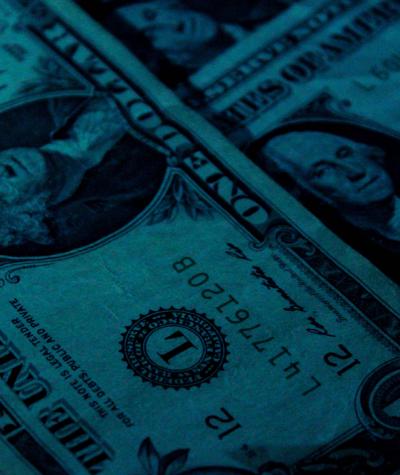Steve Mnuchin has terrible timing. On Monday, federal prosecutors charged Maria Butina with being an unregistered Russian agent who attempted to influence American politics through the NRA, an organization whose 501(c)(4) arm spent at least $35 million during the last election cycle. Also on Monday, Mnuchin’s Treasury Department announced a policy change that will make it even easier for foreign powers to funnel money through 501(c)(4)s—like the NRA—to illegally influence American elections without detection. This decision could allow future foreign agents to distort our politics more effectively than Maria Butina could ever hope to.
Mnuchin’s announcement cloaks an attack on transparency in the language of bureaucratic simplification. Before Monday, under Treas. Reg. § 1.6033-2(a)(2)(ii)(f), 501(c)(4)s like the NRA had to report “the names and addresses of all persons who contributed, bequeathed, or devised $5,000 or more” to the IRS on the Schedule B of their Form 990 or 990-EZ tax returns. Those names were not disclosed to the public—but it was the only means by which dark money donors were reported to the government.
That meant politically-active 501(c)(4)s couldn’t accept foreign money without admitting it to the federal government. Because the FEC’s debilitating dysfunction has prevented the Commission from requiring dark-money organizations to publicly disclose their donors, this made the IRS the only federal government entity that required any level of transparency whatsoever for 501(c)(4)s.
No longer. According to Secretary Mnuchin, because the IRS is not responsible for enforcing campaign finance laws (including the bar on foreign spending in U.S. elections, 52 U.S.C. § 30121), the agency “has no tax administration need for continuing the routine collection of donor names and addresses.”
This is an argument of astonishing bad faith. Yes, illegal contributions to political committees violate different laws than the ones the IRS is charged with enforcing. But this policy change will encourage such illegality by removing the requirement that foreign contributions be reported to the federal government, if not to the federal agency responsible for prosecuting such crimes.
Make no mistake: this administration has chosen to make it easier to allow foreign powers to pour dark money into American politics without detection.
Supporters of Secretary Mnuchin’s change may protest that the “costs and risks associated with reporting” donors to 501(c)(4)s justify eliminating these minimal reporting requirements. None passes the laugh test. The first cited “cost” is “needless paperwork.” But the new policy admits that 501(c)(4)s will still have to keep the names and addresses of their donors in their records and will still have to file a Form 990. So what’s the additional burden? The physical and mental exertion of copying and pasting? (On a side note, it’s hard to take this administration’s desire to simplify tax returns all that seriously.)
The second “risk” cited by Secretary Mnuchin’s announcement is the chance that the identities of donors disclosed on a Schedule B form will be accidentally released to the public or abused by disgruntled federal employees. Saying that the solution to the problem of accidental disclosure or abuse of confidential tax information is for the IRS to stop collecting that information is like saying that the solution to Wikileaks’ publication of State Department memos is for the State Department to stop sending memos. If breaches and misuse of confidential information were the agency’s actual concern, the IRS would focus on better protecting data, not cease its collection.
Furthermore, Treasury’s policy change will also have second-order effects on states’ efforts to protect their own elections from dark money. New York, for example, requires 501(c)(4)s to submit their federal Form 990s and all required schedules to state authorities. Now that dark-money groups do not have to disclose their donors on their Form 990s, states will have to start from scratch—just as the 2018 elections, and foreign efforts to influence them, are heating up.
Secretary Mnuchin’s announcement claimed that “[t]he IRS’s new policy . . . will make our tax system simpler and less susceptible to abuse.” Actually, the IRS’s new policy will make laundering foreign money through dark-money groups simpler and our electoral system more susceptible to abuse. 501(c)(4)s’ dark money is about to get even darker, and this administration is unwilling to turn on the lights.
